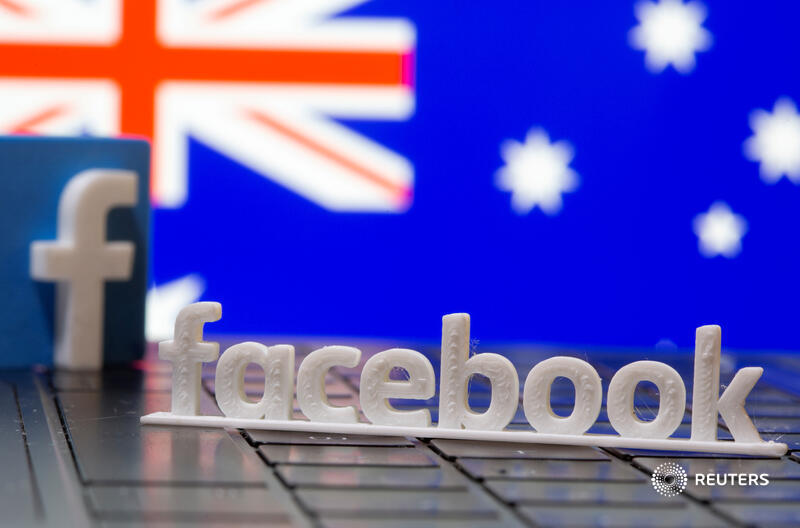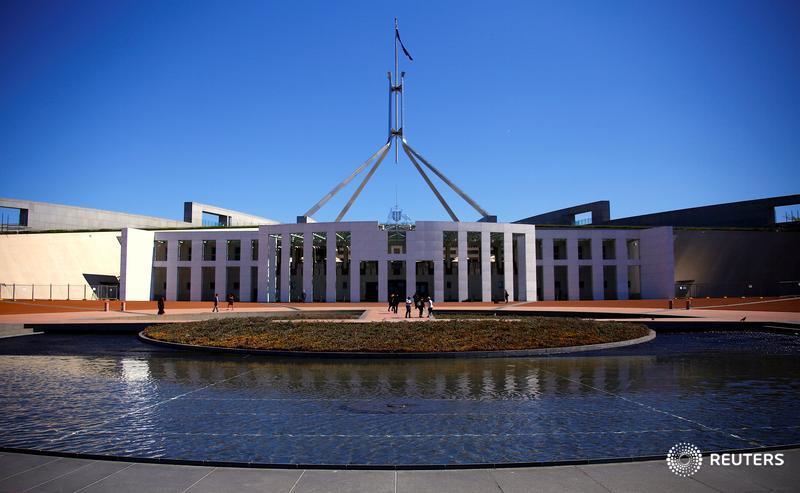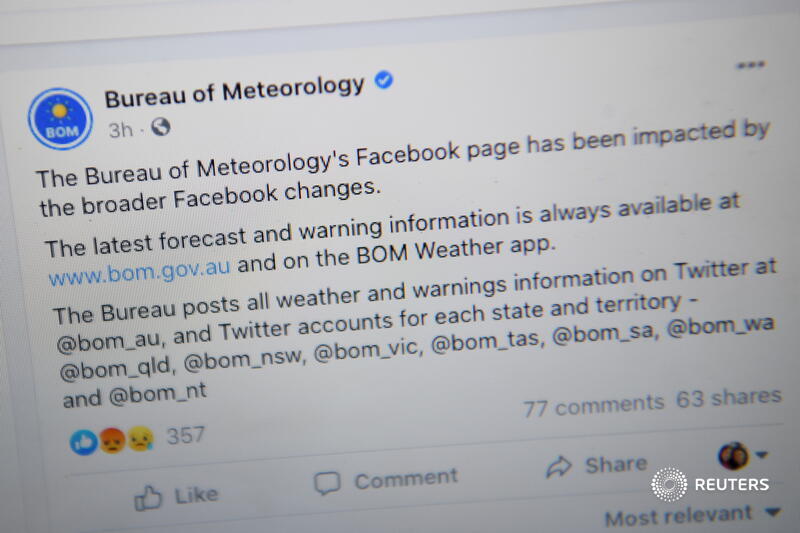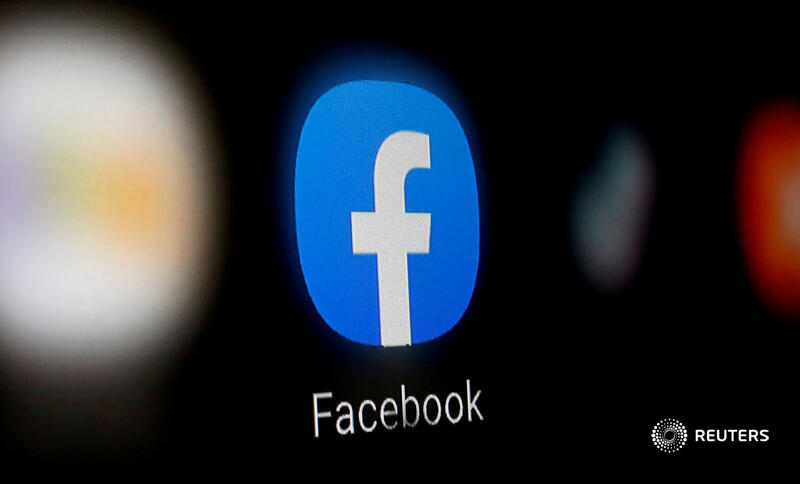Facebook has blocked Australian users from sharing and viewing news content on its popular social media platform, escalating a dispute with the government over paying media publishers for content https://reut.rs/3pzZxV0
 While Big Tech and media outlets have battled over the right to news content in other jurisdictions, Australia’s looming law represents the most expansive reform and is being closely watched around the world https://reut.rs/3avd9gb
While Big Tech and media outlets have battled over the right to news content in other jurisdictions, Australia’s looming law represents the most expansive reform and is being closely watched around the world https://reut.rs/3avd9gb
 What will the legislation do?
What will the legislation do?The so-called Media Bargaining Code has been designed by the government and competition regulator to address a power imbalance between the social media giants and publishers when negotiating payment for news content used on the tech firms’ sites
Under the code, news outlets will be required to negotiate commercial deals individually or collectively with Facebook and Google. If they cannot reach an agreement, an arbitrator will decide whose offer is more reasonable
The law also requires tech firms give media outlets notice when they change search algorithms in a way affecting the order in which content appears.
They must also share their use of consumer data extracted from news content on their sites
They must also share their use of consumer data extracted from news content on their sites
 How is Australia's approach different?
How is Australia's approach different?Australia has used competition law to draft the Media Bargaining Code, an approach the regulator has argued is much more effective than the copyright legislation being used in other jurisdictions, including the EU
The difference between the two has been highlighted by the recent deals struck with Google by Australian publishers and by outlets in France, which is the first EU country to bring an EU directive on copyright into national law
 Why has the dispute escalated?
Why has the dispute escalated?The proposed legislation has reached a crunch point, with widespread support in parliament, where it is expected to be voted into law within days
In recent years, traditional media companies operating in Australia have suffered huge hits to income streams, due to dwindling subscriptions and advertising
Facebook’s decision to block users from sharing and viewing news content was condemned by Australia’s political leaders after many of the country’s official health and disaster management alerts were also erased from news feeds
Facebook said the law did not provide clear guidance on the definition of news content, although it said it would restore content that was inadvertently impacted
 What has the response been?
What has the response been?Facebook said that the law 'fundamentally misunderstands' the relationship between itself and publishers and it faced a stark choice of attempting to comply with it or ban news content
$FB said its platform generates billions of free referrals to Australian publishers worth significant sums to the media companies.
Google, however, has backed down from a threat to withdraw its main search engine from Australia if the laws go ahead
Google, however, has backed down from a threat to withdraw its main search engine from Australia if the laws go ahead
$GOOGL has instead struck deals with some of the country’s major commercial publishers. They include a global deal with News Corp for an unnamed sum in one of the most extensive deals of its kind with Big Tech https://reut.rs/3avd9gb

 Read on Twitter
Read on Twitter















